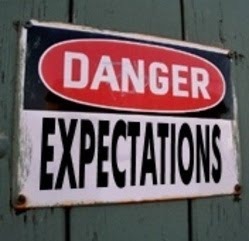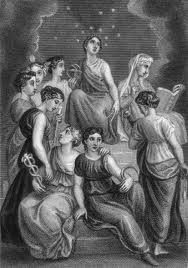Terry Odell's Blog, page 285
April 11, 2011
Edits, Edits, Edits
What I'm reading: The Sex Club by L.J. Sellers (and despite the title, it's a mystery, not erotica, or even a romance); Detachment Fault, by Susan Cummins Miller.
Another reminder – please check the Contest and Deals & Steals tabs above. There are some great bargains (and on a lot more than just my books).
This Just In: An article I wrote about characters is featured at the Guide To Literary Agents Blog. Please pop over. Please? And spread the word.
 I've been dealing with edits for several projects lately, and they've all been different. I've got edits from a publisher, edits I'm doing myself, and edits from a professional editor I've hired. I thought I'd share.
I've been dealing with edits for several projects lately, and they've all been different. I've got edits from a publisher, edits I'm doing myself, and edits from a professional editor I've hired. I thought I'd share.
First are the long-awaited edits for one of my mystery short stories which will be part of an anthology. This is one of two connected stories, but I've only received edits on the first of them.
These edits come from the publisher. I get a marked up document (using the dreaded "Track Changes"). Her instructions say to accept any changes I agree with, and leave Track Changes on for anything I add or change myself.
Upon opening the document, I discovered that most of her edits are changes in speaker tags. I figure it's easy enough to accept them, because if she can follow who's speaking without those particular tags, other readers shouldn't have any trouble.
(Hint, if you're not familiar with Track Changes: every time someone touches the document, it'll show up in the margin as an insertion or deletion. This means if someone changes "the" to "a", you have to approve the deletion of "the" AND the insertion of "a". This can be a royal pain.

However, if you highlight the section with the changes, and look at the "reviewing" toolbar, there's an icon that allows you to accept all the changes (both insertions and deletions) for the highlighted section. There's one that lets you accept them for the entire document, but I wouldn't want to do that at this stage of editing.

The editor also has comments in the margins, and a few "vague" suggestions, such as, "if you want to expand this section, we're OK on word count." Those are up to me to deal with as I see fit.
The next edits I'm working on are for books that have already been published. I've requested my rights back, as the publisher has changed its imprint, and I'm not sure mine fit with the new line. These have been through a professional editor. However, I wrote them years ago, and there are a lot of things that could use an update. And, on reading, I found that this editor wasn't as thorough as she could have been. As it was my very first book contract, I assumed that she was making it "perfect." But on my read-through I started finding a lot of things that could be stronger (and again, lots of characters with names starting with the same letter, overused words, and lots of places where the word choices could be stronger). So, I've been feeding it to my current crit partners, who haven't seen this book, chapters and making sure it's as strong as possible before I re-publish it myself.
Lastly, I've decided that book #4 in my Blackthorne, Inc. series would be far too long in coming, since book #3 doesn't come out until 2012. Also, at the moment, the publisher releases books in hard cover only, which greatly restricts distribution. So, since it can be read as a stand-alone, I've decided to self-publish it. Now, one of the "stigmas" of self-publishing is the misconception that all self-published books are inferior because they're not edited. This is just plain false. And although I have confidence that my writing is strong, I would never put a book out that hasn't been touched by professional eyes.
To this end, I've hired an independent editor. Yes, it costs money, but why ruin my reputation by putting out a sloppy piece of work? If someone reads a poorly edited book, they're not going to pick up another one you've written.
Here, the editor prefers to work in sections, sending me about 5 chapters at a time from my manuscript. She sends it in two versions: one with all her changes showing in Track Changes, as well as her comments, and a second file with all her changes accepted, and only the comments visible. At this point, most of her changes have been wording or punctuation type suggestions, and I haven't disagreed with many of them. Then, on the second file, I can respond to her questions or comments. The biggest difference for me here is that ultimately, I'm publishing the document, so I know exactly what I want once I have the completed manuscript. I've found most of her comments to be spot on, and where I disagree, I let her know why, but ultimately, all the decisions are mine.
For example, when I was going through edits for When Danger Calls, the editor wanted me to show a seven minute combat scene that I'd glossed over. Since she worked for the publisher, I did add it. For an independent editor, I don't have any "obligation" to make the suggested changes, but there's an inherent trust that she knows what she's talking about, and I'd be wise to pay attention.
Tomorrow, my guest is LaVerne Clark – she's coming all the way from New Zealand to be my guest. Please come back!
Another reminder – please check the Contest and Deals & Steals tabs above. There are some great bargains (and on a lot more than just my books).
This Just In: An article I wrote about characters is featured at the Guide To Literary Agents Blog. Please pop over. Please? And spread the word.
 I've been dealing with edits for several projects lately, and they've all been different. I've got edits from a publisher, edits I'm doing myself, and edits from a professional editor I've hired. I thought I'd share.
I've been dealing with edits for several projects lately, and they've all been different. I've got edits from a publisher, edits I'm doing myself, and edits from a professional editor I've hired. I thought I'd share.First are the long-awaited edits for one of my mystery short stories which will be part of an anthology. This is one of two connected stories, but I've only received edits on the first of them.
These edits come from the publisher. I get a marked up document (using the dreaded "Track Changes"). Her instructions say to accept any changes I agree with, and leave Track Changes on for anything I add or change myself.
Upon opening the document, I discovered that most of her edits are changes in speaker tags. I figure it's easy enough to accept them, because if she can follow who's speaking without those particular tags, other readers shouldn't have any trouble.
(Hint, if you're not familiar with Track Changes: every time someone touches the document, it'll show up in the margin as an insertion or deletion. This means if someone changes "the" to "a", you have to approve the deletion of "the" AND the insertion of "a". This can be a royal pain.

However, if you highlight the section with the changes, and look at the "reviewing" toolbar, there's an icon that allows you to accept all the changes (both insertions and deletions) for the highlighted section. There's one that lets you accept them for the entire document, but I wouldn't want to do that at this stage of editing.

The editor also has comments in the margins, and a few "vague" suggestions, such as, "if you want to expand this section, we're OK on word count." Those are up to me to deal with as I see fit.
The next edits I'm working on are for books that have already been published. I've requested my rights back, as the publisher has changed its imprint, and I'm not sure mine fit with the new line. These have been through a professional editor. However, I wrote them years ago, and there are a lot of things that could use an update. And, on reading, I found that this editor wasn't as thorough as she could have been. As it was my very first book contract, I assumed that she was making it "perfect." But on my read-through I started finding a lot of things that could be stronger (and again, lots of characters with names starting with the same letter, overused words, and lots of places where the word choices could be stronger). So, I've been feeding it to my current crit partners, who haven't seen this book, chapters and making sure it's as strong as possible before I re-publish it myself.
Lastly, I've decided that book #4 in my Blackthorne, Inc. series would be far too long in coming, since book #3 doesn't come out until 2012. Also, at the moment, the publisher releases books in hard cover only, which greatly restricts distribution. So, since it can be read as a stand-alone, I've decided to self-publish it. Now, one of the "stigmas" of self-publishing is the misconception that all self-published books are inferior because they're not edited. This is just plain false. And although I have confidence that my writing is strong, I would never put a book out that hasn't been touched by professional eyes.
To this end, I've hired an independent editor. Yes, it costs money, but why ruin my reputation by putting out a sloppy piece of work? If someone reads a poorly edited book, they're not going to pick up another one you've written.
Here, the editor prefers to work in sections, sending me about 5 chapters at a time from my manuscript. She sends it in two versions: one with all her changes showing in Track Changes, as well as her comments, and a second file with all her changes accepted, and only the comments visible. At this point, most of her changes have been wording or punctuation type suggestions, and I haven't disagreed with many of them. Then, on the second file, I can respond to her questions or comments. The biggest difference for me here is that ultimately, I'm publishing the document, so I know exactly what I want once I have the completed manuscript. I've found most of her comments to be spot on, and where I disagree, I let her know why, but ultimately, all the decisions are mine.
For example, when I was going through edits for When Danger Calls, the editor wanted me to show a seven minute combat scene that I'd glossed over. Since she worked for the publisher, I did add it. For an independent editor, I don't have any "obligation" to make the suggested changes, but there's an inherent trust that she knows what she's talking about, and I'd be wise to pay attention.
Tomorrow, my guest is LaVerne Clark – she's coming all the way from New Zealand to be my guest. Please come back!
Published on April 11, 2011 04:00
April 8, 2011
Friday Field Trip - In Search of a Cover
A mixed blessing of publishing your own book is that you are in charge of the cover art. If you're talented and have a good vision of what you want, that's a plus. If you're more of a "well, I'll know it when I see it" kind of person, it's a tough call.
I'm working with a graphic artist for a potential cover in anticipation of getting the rights back to one of my books, and then publishing it myself. Since it's set in Oregon, I asked my sister in law if she had any images that she'd like to share. You've probably seen some of her work before.
She sent me some pictures, and I sent some I thought would work to the graphics artist. Things we had to consider: vertical vs. horizontal, and high enough resolution, since when she took the pictures, she wasn't really thinking of book covers.
This week, I'll share her pictures. On future posts, I'll share the various steps we've been going through to come up with a cover for the book.









I'm working with a graphic artist for a potential cover in anticipation of getting the rights back to one of my books, and then publishing it myself. Since it's set in Oregon, I asked my sister in law if she had any images that she'd like to share. You've probably seen some of her work before.
She sent me some pictures, and I sent some I thought would work to the graphics artist. Things we had to consider: vertical vs. horizontal, and high enough resolution, since when she took the pictures, she wasn't really thinking of book covers.
This week, I'll share her pictures. On future posts, I'll share the various steps we've been going through to come up with a cover for the book.








Published on April 08, 2011 04:00
April 7, 2011
Expectations - Great or Not?
I think it's part of human nature to want to know what's going to happen, or to go into just about any situation with a set of expectations based on either past experience, word of mouth, or our own (perhaps flawed) logic.
 When the phone rings, do you wonder who it might be. (And do you wonder what people did before caller ID?)
When the phone rings, do you wonder who it might be. (And do you wonder what people did before caller ID?)
Do you go to a movie without some idea of what you're going to be seeing? Do you like to read the reviews first? Same goes for books. Or restaurants.
How many times have you actually done something totally cold?
Now, if something doesn't match one's expectations, does that make it bad? No, of course not.
So, when I went to my first Left Coast Crime conference, I automatically expected it to be very much like SleuthFest, the only other mystery conference I'd attended. It wasn't. While there were many areas where they were different, I'll pick out only one here--the overall format, which was similar in both.
Like SleuthFest, Left Coast Crime used the panel model. Author attendees were assigned to be part of panels based on their requests for general topics as well as what the panel coordinator thought would be a good fit. Panels were assigned moderators.
Now, here, I can only compare what I know about moderator duties from SleuthFest, where we were give four pages of details instructions. Based on what I saw at LCC, either there were very sketchy instructions, or they were ignored by many moderators. In some cases, moderators actually moderated. In others, they inserted themselves into the panel. In some cases, they obviously did their homework and directed the panelists in a discussion of the topic. In others, they hit the panelists with unexpected questions, causing "dead air" while they searched for a coherent answer.
Sometimes, the moderators asked questions that had absolutely nothing to do with the topic. Which is another one of those "expectation" issues.
Both SleuthFest and LCC have clever, catchy titles for their panels. However, they don't elaborate, and the poor attendee is left going into a room with one set of expectations, only to find they're totally wrong.
Sometimes the panel title was straightforward, but the panelists and/or moderator didn't match content to title. I mentioned one title, "Breaking Barricades and Opening Doors." At a mystery conference, my expectation was along the lines of SWAT, not genre-crossing, which is what the panelists discussed.
How about "Series vs Standalones." Expectation: discussions of the differences in writing a series vs writing a stand alone. Trouble was, nobody on the panel wrote stand alones. And the moderator's questions had nothing to do with writing series in general, but only asked the panelists to talk about their specific books. Great for marketing, perhaps, but it didn't do anything to help me, because dealing with series and stand alone books is a dilemma I'm constantly facing.
I missed what I heard was an excellent panel, because the title, "You Can't Run in High Heels" didn't sound like what the panel was actually about—defensive techniques for women.
One other difference in the panels--at SleuthFest, moderators took care of the little things, like setting out the name cards and timekeeping. Here, each panel had a volunteer to take care of that. (Of course, if the moderator is too busy reading her notes to look at the volunteer, the timekeeping thing becomes a challenge!)
Did any of this mean the panels, or the conference itself wasn't a good one? No. It just meant that 1) I hope next time, the organizers learn how important putting a few lines of description in the program can be, and 2) they have better control over the moderators so that those in the audience get a constant level of quality across the board.
It also means that should I go again, I'll know more of what to expect, which should add to the experience.
image from MSPmentor blog.
 When the phone rings, do you wonder who it might be. (And do you wonder what people did before caller ID?)
When the phone rings, do you wonder who it might be. (And do you wonder what people did before caller ID?) Do you go to a movie without some idea of what you're going to be seeing? Do you like to read the reviews first? Same goes for books. Or restaurants.
How many times have you actually done something totally cold?
Now, if something doesn't match one's expectations, does that make it bad? No, of course not.
So, when I went to my first Left Coast Crime conference, I automatically expected it to be very much like SleuthFest, the only other mystery conference I'd attended. It wasn't. While there were many areas where they were different, I'll pick out only one here--the overall format, which was similar in both.
Like SleuthFest, Left Coast Crime used the panel model. Author attendees were assigned to be part of panels based on their requests for general topics as well as what the panel coordinator thought would be a good fit. Panels were assigned moderators.
Now, here, I can only compare what I know about moderator duties from SleuthFest, where we were give four pages of details instructions. Based on what I saw at LCC, either there were very sketchy instructions, or they were ignored by many moderators. In some cases, moderators actually moderated. In others, they inserted themselves into the panel. In some cases, they obviously did their homework and directed the panelists in a discussion of the topic. In others, they hit the panelists with unexpected questions, causing "dead air" while they searched for a coherent answer.
Sometimes, the moderators asked questions that had absolutely nothing to do with the topic. Which is another one of those "expectation" issues.
Both SleuthFest and LCC have clever, catchy titles for their panels. However, they don't elaborate, and the poor attendee is left going into a room with one set of expectations, only to find they're totally wrong.
Sometimes the panel title was straightforward, but the panelists and/or moderator didn't match content to title. I mentioned one title, "Breaking Barricades and Opening Doors." At a mystery conference, my expectation was along the lines of SWAT, not genre-crossing, which is what the panelists discussed.
How about "Series vs Standalones." Expectation: discussions of the differences in writing a series vs writing a stand alone. Trouble was, nobody on the panel wrote stand alones. And the moderator's questions had nothing to do with writing series in general, but only asked the panelists to talk about their specific books. Great for marketing, perhaps, but it didn't do anything to help me, because dealing with series and stand alone books is a dilemma I'm constantly facing.
I missed what I heard was an excellent panel, because the title, "You Can't Run in High Heels" didn't sound like what the panel was actually about—defensive techniques for women.
One other difference in the panels--at SleuthFest, moderators took care of the little things, like setting out the name cards and timekeeping. Here, each panel had a volunteer to take care of that. (Of course, if the moderator is too busy reading her notes to look at the volunteer, the timekeeping thing becomes a challenge!)
Did any of this mean the panels, or the conference itself wasn't a good one? No. It just meant that 1) I hope next time, the organizers learn how important putting a few lines of description in the program can be, and 2) they have better control over the moderators so that those in the audience get a constant level of quality across the board.
It also means that should I go again, I'll know more of what to expect, which should add to the experience.
image from MSPmentor blog.
Published on April 07, 2011 04:00
April 6, 2011
Left Coast Crime - Research
Thanks to Sherry Gloag for her great post yesterday. I'm looking for bungee cords to keep my muse in her seat.
And please - don't forget my next contest, and my special Tax Relief Pricing on When Danger Calls and What's in a Name? Click the appropriate tags above for details.
Other panels I attended at Left Coast Crime discussed doing research. Even though we write fiction and tend to make things up, we can't simply ignore doing our homework.
 For one of the panelists, a former journalist, doing research is second nature, and he's not really aware he's doing it.
For one of the panelists, a former journalist, doing research is second nature, and he's not really aware he's doing it.
The question came up as to when authors did their research. One, whose background is in geology, which plays a part in her books, said she read books, collected maps, and was familiar with the setting before she ever arrived to do the "actual" research.
One author writes books based on things that actually happened. His publisher wouldn't let him use the name of a former governor because the man was still alive. The author reluctantly changed the name, but anyone familiar with the history of that state would wonder where that stranger came from. As he put it, it would be like reading a book where "After the Civil War, President Schwartz freed the slaves."
Even with research, mistakes happen. One source who was an "expert" on firearms gave an author misinformation. He realized his error and contacted her, but by then the book had gone to print.
Another caveat: if experts are reviewing your work, be sure you're not dumping too much details. A scientific identification of a specific species of ground squirrel would probably bore a reader (with the exception of the Hubster), regardless of how accurate it is.
Using made up towns can avoid disputes, even though they're based on real locations.
Reader (and author) expectation is something else to consider. One panelist had been using local police officers as resources, and she was invited to a homicide scene. Aside from wondering if she was nuts for being so excited on the drive over, she found that it was nothing like what she'd expected—mostly the cops hanging around and waiting.
Then there's the difference between "Google" research and "eyeball" research. One author was setting a scene in a mine, where he could stick his character in a dark, claustrophobic environment. But when he went down into a mine, he found that modern mines were excavated using machinery, so the walls were all straight. And they were beige in color, because they were coated for safety purposes. He found it less than scary to write about the "straight, beige walls closing in" on his character.
Research can mean interviewing people who know what you're writing about. Most of the time, they'll be glad to talk because they love their work and are thrilled that someone else is interested. What's important is that you know what you need to know—have your questions prepared. And sometimes, your subject might not want to talk until he knows you're credentials are valid. One author asked a police contact who'd been helping her if he'd mind reading her manuscript (this is rare—I wouldn't expect it, or even ask any of my contacts, but she'd been dealing with this one quite some time.) He actually took the day off to read it. Not only that, but he told his commanding officer that's why he wanted the day off. The author was surprised, but her contact said, "No problem. You make us look good."
So, armed with your research, the next step is to get it into your book. Again, you're writing fiction. Your goal is to tell a story, not impress the reader with how much you know. As one author of police procedurals said, there are thousands of steps in an investigation. You don't write all of them. Pick the ones that will move your story forward.
For a scene I was writing, I needed my heroine to pick up someone else's gun, and know whether or not it was loaded. Since she was a cop, she'd likely know this. All I "knew" was that it was a revolver, so I asked my son-in-law. He sent me about three pages of step-by-step information, greatly elaborated upon. What I wrote was, "She made sure the safety was off and that there were live rounds in the cylinder."
Sometimes, research is simply getting the "flavor" of the characters and their jobs. When I did my ride-along in Orlando, I picked what I hoped would be a quiet sector on a not-too-busy shift. It wasn't that I didn't want to see what cops did—I wanted to be able to talk to the officer driving with me. Likewise, when I invited detectives out to chat over beer. I had my questions, but I got just as much from watching they way they interacted with each other—and that's what takes up far more page time than the simple answer to my questions about procedure. There's a scene in Hidden Fire where three cops are having breakfast and discussing a case. The banter was lifted almost directly from the night we'd sat around the Ale House.
And please - don't forget my next contest, and my special Tax Relief Pricing on When Danger Calls and What's in a Name? Click the appropriate tags above for details.
Other panels I attended at Left Coast Crime discussed doing research. Even though we write fiction and tend to make things up, we can't simply ignore doing our homework.
 For one of the panelists, a former journalist, doing research is second nature, and he's not really aware he's doing it.
For one of the panelists, a former journalist, doing research is second nature, and he's not really aware he's doing it. The question came up as to when authors did their research. One, whose background is in geology, which plays a part in her books, said she read books, collected maps, and was familiar with the setting before she ever arrived to do the "actual" research.
One author writes books based on things that actually happened. His publisher wouldn't let him use the name of a former governor because the man was still alive. The author reluctantly changed the name, but anyone familiar with the history of that state would wonder where that stranger came from. As he put it, it would be like reading a book where "After the Civil War, President Schwartz freed the slaves."
Even with research, mistakes happen. One source who was an "expert" on firearms gave an author misinformation. He realized his error and contacted her, but by then the book had gone to print.
Another caveat: if experts are reviewing your work, be sure you're not dumping too much details. A scientific identification of a specific species of ground squirrel would probably bore a reader (with the exception of the Hubster), regardless of how accurate it is.
Using made up towns can avoid disputes, even though they're based on real locations.
Reader (and author) expectation is something else to consider. One panelist had been using local police officers as resources, and she was invited to a homicide scene. Aside from wondering if she was nuts for being so excited on the drive over, she found that it was nothing like what she'd expected—mostly the cops hanging around and waiting.
Then there's the difference between "Google" research and "eyeball" research. One author was setting a scene in a mine, where he could stick his character in a dark, claustrophobic environment. But when he went down into a mine, he found that modern mines were excavated using machinery, so the walls were all straight. And they were beige in color, because they were coated for safety purposes. He found it less than scary to write about the "straight, beige walls closing in" on his character.
Research can mean interviewing people who know what you're writing about. Most of the time, they'll be glad to talk because they love their work and are thrilled that someone else is interested. What's important is that you know what you need to know—have your questions prepared. And sometimes, your subject might not want to talk until he knows you're credentials are valid. One author asked a police contact who'd been helping her if he'd mind reading her manuscript (this is rare—I wouldn't expect it, or even ask any of my contacts, but she'd been dealing with this one quite some time.) He actually took the day off to read it. Not only that, but he told his commanding officer that's why he wanted the day off. The author was surprised, but her contact said, "No problem. You make us look good."
So, armed with your research, the next step is to get it into your book. Again, you're writing fiction. Your goal is to tell a story, not impress the reader with how much you know. As one author of police procedurals said, there are thousands of steps in an investigation. You don't write all of them. Pick the ones that will move your story forward.
For a scene I was writing, I needed my heroine to pick up someone else's gun, and know whether or not it was loaded. Since she was a cop, she'd likely know this. All I "knew" was that it was a revolver, so I asked my son-in-law. He sent me about three pages of step-by-step information, greatly elaborated upon. What I wrote was, "She made sure the safety was off and that there were live rounds in the cylinder."
Sometimes, research is simply getting the "flavor" of the characters and their jobs. When I did my ride-along in Orlando, I picked what I hoped would be a quiet sector on a not-too-busy shift. It wasn't that I didn't want to see what cops did—I wanted to be able to talk to the officer driving with me. Likewise, when I invited detectives out to chat over beer. I had my questions, but I got just as much from watching they way they interacted with each other—and that's what takes up far more page time than the simple answer to my questions about procedure. There's a scene in Hidden Fire where three cops are having breakfast and discussing a case. The banter was lifted almost directly from the night we'd sat around the Ale House.
Published on April 06, 2011 04:00
April 5, 2011
The Elusive Muse
Today I'm welcoming Sherry Gloag to Terry's Place. Sherry lives in the beautiful English county of Norfolk and considers the surrounding countryside an extension to her garden. When she is not writing she enjoys reading, gardening, crystal craft work and walking. While out walking she often enjoys lengthy conversations with both, her characters and, if she has not gone 'walk-about', her muse.
I'm sure some of you remember the novelty song, They're Coming to Take Me Away, Ha-Haaa! While this song may be about a 'mutt', it could just as easily be about a writers' elusive muse. You know the one that suddenly decides to take off for the day, muse– week – month- year, when you sit down to transfer that wonderful idea into the computer the! The hardest thing for most writers to do is to write.
 Sometimes, when I sit down and attempt to transfer that 'amazing' idea for a story into a word document, something happens. That idea shifts like smoke and evaporates before I can capture it. And I swear I hear my muse laughing at me. It is so frustrating. I'm just glad to know I'm in good company. Even writers such as Paul Valery, Gerard Manley Hopkins, Maeve Binchy and Morris West have all announced, at one time or another, their intention to quit writing then carried on.
Sometimes, when I sit down and attempt to transfer that 'amazing' idea for a story into a word document, something happens. That idea shifts like smoke and evaporates before I can capture it. And I swear I hear my muse laughing at me. It is so frustrating. I'm just glad to know I'm in good company. Even writers such as Paul Valery, Gerard Manley Hopkins, Maeve Binchy and Morris West have all announced, at one time or another, their intention to quit writing then carried on.
But wait! Does this mean the writer always relies of their muse to create a book? It shouldn't.
Not unless you name your muse 'Discipline'. You can have the most wonderful ideas in the world but if those ideas don't transpose to the page then they're not worth the time you spent thinking about them.
It's easy to feel discouraged when time after time your ideas vanish into the ether the instant you start typing. Don't give up or give in! If writing is the path your heart's desire. No matter how many times you start and stop or how often you try to avoid it because of the anxiety it creates, the important thing is don't give up.
But like anything worth striving for discipline is the answer. Write everyday. It doesn't matter what, just write until begins to flow and becomes an integral part of your daily routine.
Writing garbage is O.K. as long as you are writing. You can go back and fix it later. Every writer experiences times when they are not connecting with their story and writing becomes a struggle. That doesn't mean you've lost your muse, or burnt out creatively. It just means you have a structural problem in your story or with character motivation and you need to work out what it is that is blocking your forward progress.
This is the time for author honesty. Start asking whether you've tried to force the pace, direction or integrity of the plot. Have you overlooked something that with a little tweaking would bring you back on track? Or… have you overridden what and where your characters want to be?
Next time your muse takes flight don't bother getting down on your knees and begging? She won't come back until you discover why she left.
That way, there'll be no need for 'those nice young men in their clean white coats' to cart you off to the 'funny farm'.
While writing my current novel, Duty Calls, released by Black Opal Books on February 11th, my muse took off far more often than I appreciated. But it wasn't until I wrote The Brat, my debut novel that I chanced upon trying my hand at writing short stories when my muse took off. Since I have now had six shorts published I am grateful she inadvertently pushed me in a new direction I would have otherwise have missed.
For more about Sherry and her books, visit her website, her blog, or her Facebook page.
I'm sure some of you remember the novelty song, They're Coming to Take Me Away, Ha-Haaa! While this song may be about a 'mutt', it could just as easily be about a writers' elusive muse. You know the one that suddenly decides to take off for the day, muse– week – month- year, when you sit down to transfer that wonderful idea into the computer the! The hardest thing for most writers to do is to write.
 Sometimes, when I sit down and attempt to transfer that 'amazing' idea for a story into a word document, something happens. That idea shifts like smoke and evaporates before I can capture it. And I swear I hear my muse laughing at me. It is so frustrating. I'm just glad to know I'm in good company. Even writers such as Paul Valery, Gerard Manley Hopkins, Maeve Binchy and Morris West have all announced, at one time or another, their intention to quit writing then carried on.
Sometimes, when I sit down and attempt to transfer that 'amazing' idea for a story into a word document, something happens. That idea shifts like smoke and evaporates before I can capture it. And I swear I hear my muse laughing at me. It is so frustrating. I'm just glad to know I'm in good company. Even writers such as Paul Valery, Gerard Manley Hopkins, Maeve Binchy and Morris West have all announced, at one time or another, their intention to quit writing then carried on. But wait! Does this mean the writer always relies of their muse to create a book? It shouldn't.
Not unless you name your muse 'Discipline'. You can have the most wonderful ideas in the world but if those ideas don't transpose to the page then they're not worth the time you spent thinking about them.
It's easy to feel discouraged when time after time your ideas vanish into the ether the instant you start typing. Don't give up or give in! If writing is the path your heart's desire. No matter how many times you start and stop or how often you try to avoid it because of the anxiety it creates, the important thing is don't give up.
But like anything worth striving for discipline is the answer. Write everyday. It doesn't matter what, just write until begins to flow and becomes an integral part of your daily routine.
Writing garbage is O.K. as long as you are writing. You can go back and fix it later. Every writer experiences times when they are not connecting with their story and writing becomes a struggle. That doesn't mean you've lost your muse, or burnt out creatively. It just means you have a structural problem in your story or with character motivation and you need to work out what it is that is blocking your forward progress.
This is the time for author honesty. Start asking whether you've tried to force the pace, direction or integrity of the plot. Have you overlooked something that with a little tweaking would bring you back on track? Or… have you overridden what and where your characters want to be?
Next time your muse takes flight don't bother getting down on your knees and begging? She won't come back until you discover why she left.
That way, there'll be no need for 'those nice young men in their clean white coats' to cart you off to the 'funny farm'.
While writing my current novel, Duty Calls, released by Black Opal Books on February 11th, my muse took off far more often than I appreciated. But it wasn't until I wrote The Brat, my debut novel that I chanced upon trying my hand at writing short stories when my muse took off. Since I have now had six shorts published I am grateful she inadvertently pushed me in a new direction I would have otherwise have missed.
For more about Sherry and her books, visit her website, her blog, or her Facebook page.
Published on April 05, 2011 05:00
April 4, 2011
Left Coast Crime: Pigeonholes
What I'm reading: Daphne contest entries and The Next Best Thing, by Kristan
First – Welcome to April. New for this month: Another contest (click the Contest tab for details). Also, in the spirit of Tax Relief, I'm offering discounts on two of my books (click the "Deals & Steals" tab to see those.)
Next, I filed an overview report on Left Coast Crime which is at Barbara Vey's Publishers Weekly "Beyond Her Book" blog today. Author Rosemary Harris also gave her take.
And on to the 'meat': another Left Coast Crime panel recap.
 David Morrell moderated a panel about rule breaking. (Actually, the panel was entitled "Breaking Barricades and Opening Doors" so I went in expecting something more like SWAT techniques, but more on that in another post.)
David Morrell moderated a panel about rule breaking. (Actually, the panel was entitled "Breaking Barricades and Opening Doors" so I went in expecting something more like SWAT techniques, but more on that in another post.)
Takeaways from the panel.
Mysteries and Thrillers are starting to sound the same. Don't be afraid to write your own book. One author on the panel, Johnny Boggs, has twenty-three 1st person narrators in one of his books. Didn't keep it from being published.
Pigeonholes for books isn't necessarily a good thing. Michael McGarrity said, "Don't write a "type" of story, write the story.
Panelist Zoe Sharp spoke about two kinds of books: good books and bad books. Everything else is just a "flavor." Voice is what matters.
Other advice: Don't write to become rich and famous, because you'll likely be disappointed. One doesn't write for money, one writes because it's a destiny. You can't chase the market. Strive to be a 1st rate version of yourself, not a 2nd rate version of some other author.
Michael McGarrity spoke about being at a book signing/talk event, where aspiring authors called him on changing POV five times in a single scene. They said, "You can't do that." But after some thought, they said, "But it worked."
And I think that's the answer. Know the "rules" but remember that it's about the writing.
A personal opinion here, after McGarrity's statement about not worrying about pigeonholes:
I write books I want to write, and they do follow some of the most basic "rules." In a romance, there has to be a hero and a heroine who get together at the end. In a mystery, there has to be a solution to the crime.
BUT: I wrote a mystery that steps outside the box, or straddles sub-genres, or whatever you want to call it. The feedback from the rejection letters: "It's excellent writing, but it won't work because we can't tell if it's a cozy or a police procedural." I think, until you're a better known commodity, there are some pigeonholes that you're going to have to deal with. Or, with the upsurge in indie-publishing, this might end up being a book that bypasses the traditional print market altogether.
Tomorrow, my guest is author Sherry Gloag, and she's talking about "The Elusive Muse." Be sure to come back.
Photo from workjoy.wordpress.com
First – Welcome to April. New for this month: Another contest (click the Contest tab for details). Also, in the spirit of Tax Relief, I'm offering discounts on two of my books (click the "Deals & Steals" tab to see those.)
Next, I filed an overview report on Left Coast Crime which is at Barbara Vey's Publishers Weekly "Beyond Her Book" blog today. Author Rosemary Harris also gave her take.
And on to the 'meat': another Left Coast Crime panel recap.
 David Morrell moderated a panel about rule breaking. (Actually, the panel was entitled "Breaking Barricades and Opening Doors" so I went in expecting something more like SWAT techniques, but more on that in another post.)
David Morrell moderated a panel about rule breaking. (Actually, the panel was entitled "Breaking Barricades and Opening Doors" so I went in expecting something more like SWAT techniques, but more on that in another post.)Takeaways from the panel.
Mysteries and Thrillers are starting to sound the same. Don't be afraid to write your own book. One author on the panel, Johnny Boggs, has twenty-three 1st person narrators in one of his books. Didn't keep it from being published.
Pigeonholes for books isn't necessarily a good thing. Michael McGarrity said, "Don't write a "type" of story, write the story.
Panelist Zoe Sharp spoke about two kinds of books: good books and bad books. Everything else is just a "flavor." Voice is what matters.
Other advice: Don't write to become rich and famous, because you'll likely be disappointed. One doesn't write for money, one writes because it's a destiny. You can't chase the market. Strive to be a 1st rate version of yourself, not a 2nd rate version of some other author.
Michael McGarrity spoke about being at a book signing/talk event, where aspiring authors called him on changing POV five times in a single scene. They said, "You can't do that." But after some thought, they said, "But it worked."
And I think that's the answer. Know the "rules" but remember that it's about the writing.
A personal opinion here, after McGarrity's statement about not worrying about pigeonholes:
I write books I want to write, and they do follow some of the most basic "rules." In a romance, there has to be a hero and a heroine who get together at the end. In a mystery, there has to be a solution to the crime.
BUT: I wrote a mystery that steps outside the box, or straddles sub-genres, or whatever you want to call it. The feedback from the rejection letters: "It's excellent writing, but it won't work because we can't tell if it's a cozy or a police procedural." I think, until you're a better known commodity, there are some pigeonholes that you're going to have to deal with. Or, with the upsurge in indie-publishing, this might end up being a book that bypasses the traditional print market altogether.
Tomorrow, my guest is author Sherry Gloag, and she's talking about "The Elusive Muse." Be sure to come back.
Photo from workjoy.wordpress.com
Published on April 04, 2011 04:00
April 2, 2011
And the Winner is...
The winner of March's "Follow Me" contest is Shirley. She wins an ARC of WHERE DANGER HIDES. There's a new contest for April, so be sure to check the Contest Tab. Thanks to all who entered.
Published on April 02, 2011 06:28
April 1, 2011
Friday Field Trip - Santa Fe, NM
While I was busy going to panels, the Hubster was roaming the streets of Santa Fe (and hitting a lot of eateries). I'm sharing some of his photos today. And while he's here, it's my day at Author Expressions where I'm getting in the spirit of this first day of April.
Published on April 01, 2011 04:00
March 31, 2011
Left Coast Crime: Publishing Part 2
In yesterday's post about publishing, everything focused on print vs digital. However, I neglected to give a nod to audio books, which is yet another way a story gets from author to "reader."I should also mention POD, which once had the same bad rap as being self-published. It's important to remember that POD stands for "Print on Demand" and has nothing whatsoever to do with the content, or its
Published on March 31, 2011 04:00
March 30, 2011
Left coast Crime: Publishing Panels
What I'm reading: Daphne contest entriesThanks to Ellis for yesterday's post reminding us to love our characters. Back to Left Coast Crime reporting. One of the 'fun' events was the opening reception. In keeping with the flavor of the meeting, the Rocky Mountain MWA sponsored the entertainment, a buffalo dance by young dancers from the Ohkay Oweingeh Pueblo. (I tried uploading a video I shot with
Published on March 30, 2011 05:00



